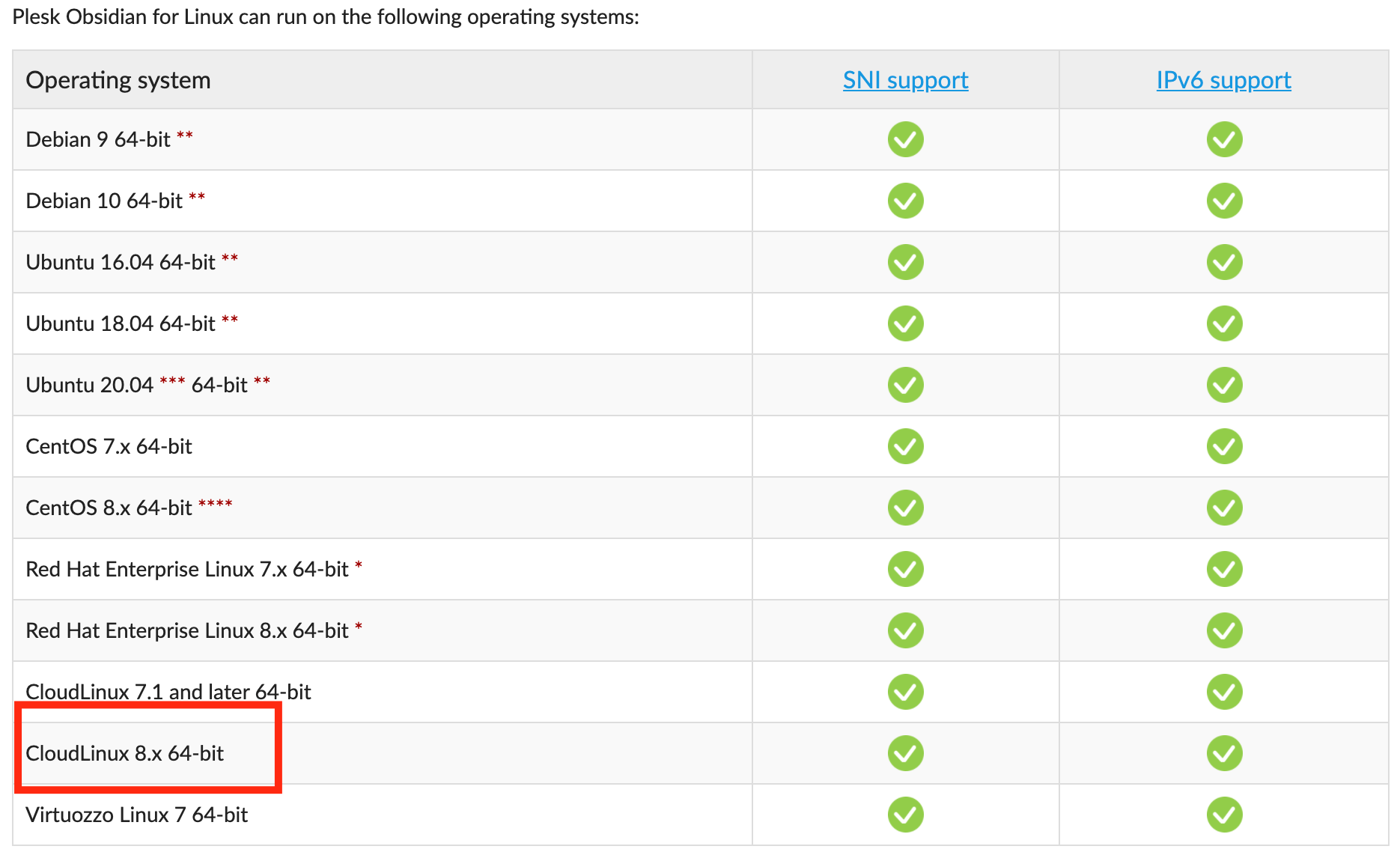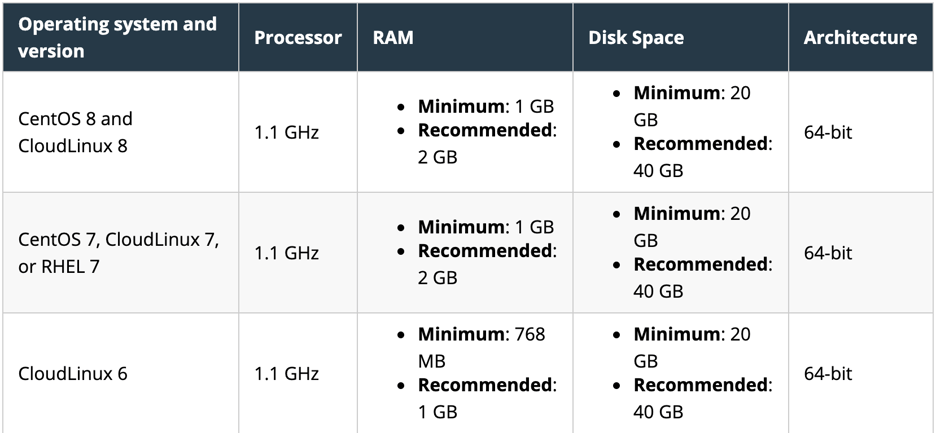Introducing CloudLinux OS 8 with cPanel and Plesk Compatibility
 In February 2020, we released CloudLinux OS 8 with the 4.18 Kernel. The rollout was a success as users experienced reliability and full update support via CloudLinux. Now, we are pleased to announce full compatibility with cPanel and Plesk control panel interfaces. While it showed great performance and strong workability on the DirectAdmin servers, the latest compatibility update adds much-needed GUI support, something web hosters will surely appreciate.
In February 2020, we released CloudLinux OS 8 with the 4.18 Kernel. The rollout was a success as users experienced reliability and full update support via CloudLinux. Now, we are pleased to announce full compatibility with cPanel and Plesk control panel interfaces. While it showed great performance and strong workability on the DirectAdmin servers, the latest compatibility update adds much-needed GUI support, something web hosters will surely appreciate.
Benefits of CloudLinux OS 8
Long time CloudLinux users have come to rely on its methods of isolation, stability, security, ease of deployment, and compatibility. As a key feature, CloudLinux separates users with shared hosting and a lightweight virtualized environment (LVE). Stability comes from the LVE and does not allow it to use other server resources. Regular updates offer a level of dependable security. We also offer deployment accessible through resource downloadable. Finally, CloudLinux OS 8 is now compatible with cPanel and Plesk. Most notably, cPanel or Plesk with CentOS 8 users that desire CloudLinux limits for shared hosting can now easily convert using this guide.
CloudLinux OS 8 includes the key 4.18 Linux Kernel features:
- Memory management supports 5-level page tables, which puts physical memory upper limit capacity at 64 TB. (User can install and use more physical memory).
- Spectre V2 mitigation default changed from IBRS to Retpolines.
- Intel® Omni-Path Architecture (OPA) Host Software. Intel OPA provides Host Fabric Interface (HFI) hardware with initialization and set up for high-performance data transfers (high bandwidth, high message rate, low latency) between compute and I/O nodes in a clustered environment. (“Intel Omni-path”-compatible high-perf setups can be used).
- The Non-Uniform Memory Access (NUMA) node count has been increased from 4 NUMA nodes to 8 NUMA nodes. (User can utilize “bigger” server machines).
- IOMMU passthrough is now enabled by default. (Can be useful for those users who pass-through h/w devices into virtual machines).
- A new “write cache” module has been implemented for the Device Mapper, which can be used to cache block write operations on SSD drives or in persistent memory. (Since such operations are cached in the RAM pages cache, caching read operations are not implemented. for instance, SSD drives can be used as a “write cache” for slow spinning HDs).
- In the EXT4 file system, work continued on cleaning the code and improving the reliability of processing in the processing of incorrect FS images specially modified for malicious purposes. (i.e., ext4 offers more proof against malicious FS images).
- The cgroup mode added a flexible process flow control mode (cgroup.type threaded), in addition to the previously used grouping of all threads of a single process and managing group as a single entity. In cgroup.type mode, threads of the same process are not required to belong to the same group and can be separated into different groups. But all of these groups must be threaded and placed in the same cgroup hierarchy. (More precise per-thread resource control via CGROUPS).
- In EXT4, the inode generation scalability on SMP systems is improved.
- Added support for resizing on the fly for filesystems that use bigalloc. In other words, it was accelerated file creation. (Faster file creation).
- Improved DDoS protection. TCP listener handling is completely lockless, making TCP servers faster and more scalable
The full list of 4.18 kernel features can be found here.
Full Support For cPanel since 92 & 94 version
CloudLinux OS 8 offers full support for the latest cPanel & WHM, Versions 92 & 94. cPanel Version 94 offers full support for CentOS 8 and CloudLinux 8, improved account transfer functionality, plus updates to PowerDNS, Dovecot, and lots more!” However, cPanel & WHM version 92 for CentOS 8 is experimental and not recommended. See here for a more detailed explanation. Important note: Make sure your system meets the minimum requirements before upgrading.
It is strongly advised that you follow these recommended requirements.
Full Support for Plesk Obsidian 18.0.33.0
According to release docs, Plesk Obsidian 18.0.33.0 supports CloudLinux OS 8. 








